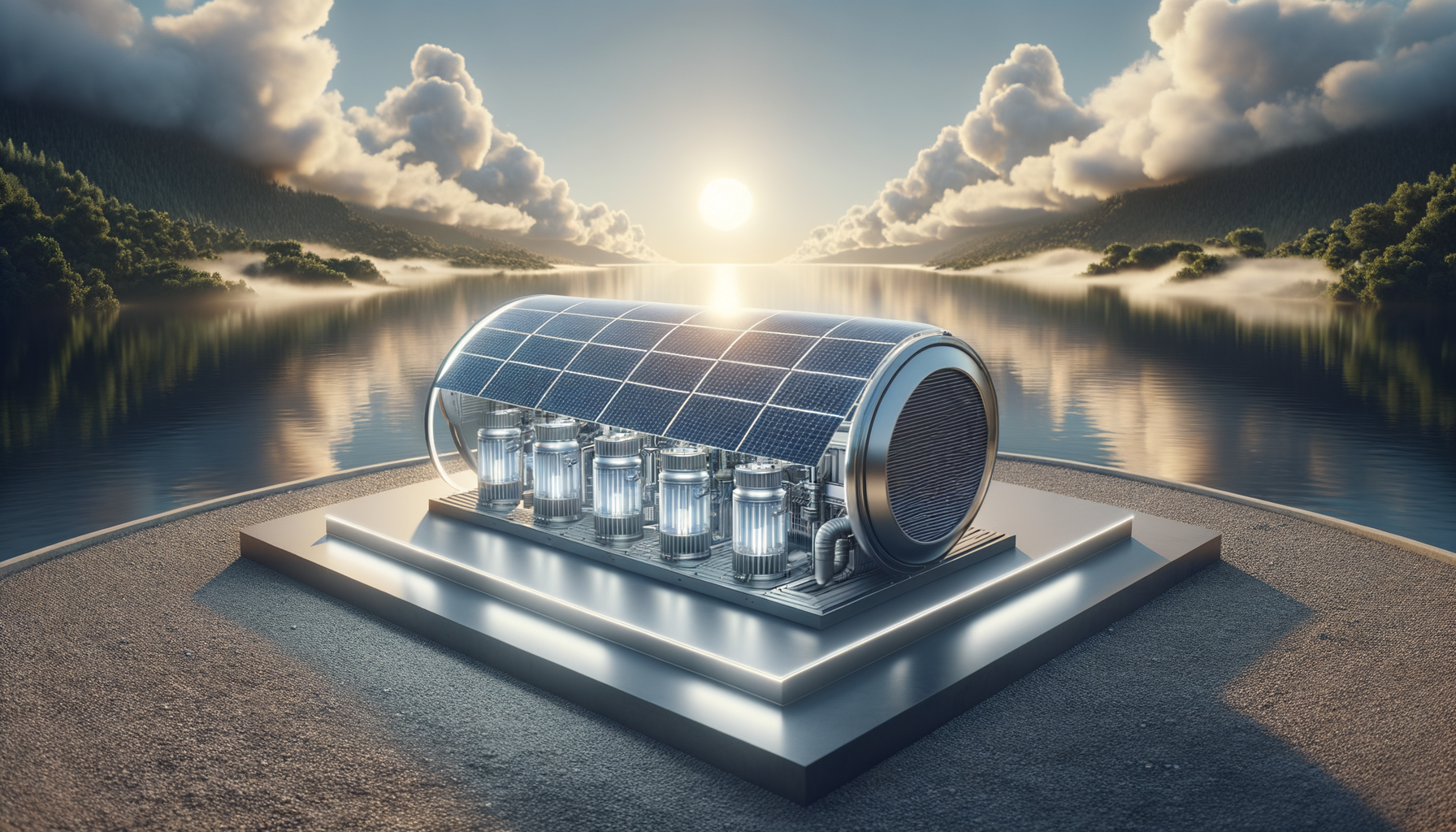Introduction to Solar Generators
In an era where sustainable energy solutions are becoming increasingly vital, solar generators emerge as a compelling option. With the rising costs of traditional energy sources and the growing need to reduce carbon footprints, solar generators offer a viable alternative. These devices harness the sun’s energy, converting it into electricity, which can power homes, businesses, and even outdoor activities. Unlike fossil fuels, solar energy is renewable and abundant, making it a sustainable choice for the future.
Solar generators are particularly beneficial in regions prone to power outages or remote areas where conventional electricity is not easily accessible. They provide a clean, quiet, and efficient way to ensure energy reliability without the environmental impact associated with traditional generators. This article explores the various aspects of solar generators, including their benefits, components, and applications, providing a comprehensive guide for those considering this innovative energy solution.
Components and Functionality of Solar Generators
Understanding the components of a solar generator is crucial for comprehending how it functions. Generally, a solar generator consists of three main parts: solar panels, a battery storage system, and an inverter. Each component plays a vital role in the energy conversion process.
- Solar Panels: These are the most visible part of the system, responsible for capturing sunlight and converting it into direct current (DC) electricity.
- Battery Storage System: This component stores the electricity generated by the solar panels for later use, ensuring a continuous power supply even when the sun isn’t shining.
- Inverter: Converts the stored DC electricity into alternating current (AC), which is the standard form of electricity used by most household appliances.
The efficiency of a solar generator largely depends on the quality and capacity of these components. High-capacity batteries and efficient inverters can significantly enhance the performance and reliability of the system. By investing in a solar generator, users can enjoy a dependable energy source that minimizes reliance on the grid and reduces energy costs over time.
Advantages of Using Solar Generators
Solar generators offer numerous advantages that make them an attractive option for both residential and commercial use. One of the primary benefits is their environmental impact. By using solar energy, these generators produce no emissions, helping to reduce the carbon footprint associated with energy consumption.
Another significant advantage is cost savings. While the initial investment in a solar generator can be substantial, the long-term savings on energy bills can be considerable. Solar generators require minimal maintenance and have a longer lifespan compared to traditional generators, which further contributes to their cost-effectiveness.
Additionally, solar generators provide energy independence. They allow users to generate their own electricity, reducing reliance on the grid and protecting against power outages. This feature is particularly valuable in areas prone to natural disasters or in remote locations where grid access is limited.
Applications of Solar Generators
The versatility of solar generators makes them suitable for a wide range of applications. In residential settings, they can power essential household appliances during power outages or serve as a primary energy source in off-grid homes. Their portability also makes them ideal for outdoor activities such as camping, boating, or RV trips, where access to traditional power sources is limited.
In commercial settings, solar generators can provide backup power for critical operations, ensuring business continuity during grid failures. They are also increasingly used in construction sites, where they offer a clean and efficient alternative to diesel generators.
Furthermore, solar generators play a crucial role in humanitarian efforts, providing electricity in disaster-stricken areas or remote communities lacking infrastructure. Their ability to deliver clean energy without the need for fuel makes them an invaluable tool for improving quality of life and supporting sustainable development.
Considerations When Choosing a Solar Generator
When selecting a solar generator, several factors should be considered to ensure it meets your energy needs. The capacity of the battery and the wattage of the solar panels are critical, as they determine how much electricity the generator can store and produce. It’s essential to assess your energy consumption patterns to choose a system that matches your requirements.
Portability is another important consideration, especially if you plan to use the generator for outdoor activities. Lightweight, compact models are easier to transport and set up, making them ideal for on-the-go power needs.
Finally, consider the quality and reputation of the manufacturer. Investing in a well-regarded brand can provide peace of mind regarding the reliability and durability of the generator. By carefully evaluating these factors, you can select a solar generator that offers the perfect balance of performance, convenience, and sustainability.








